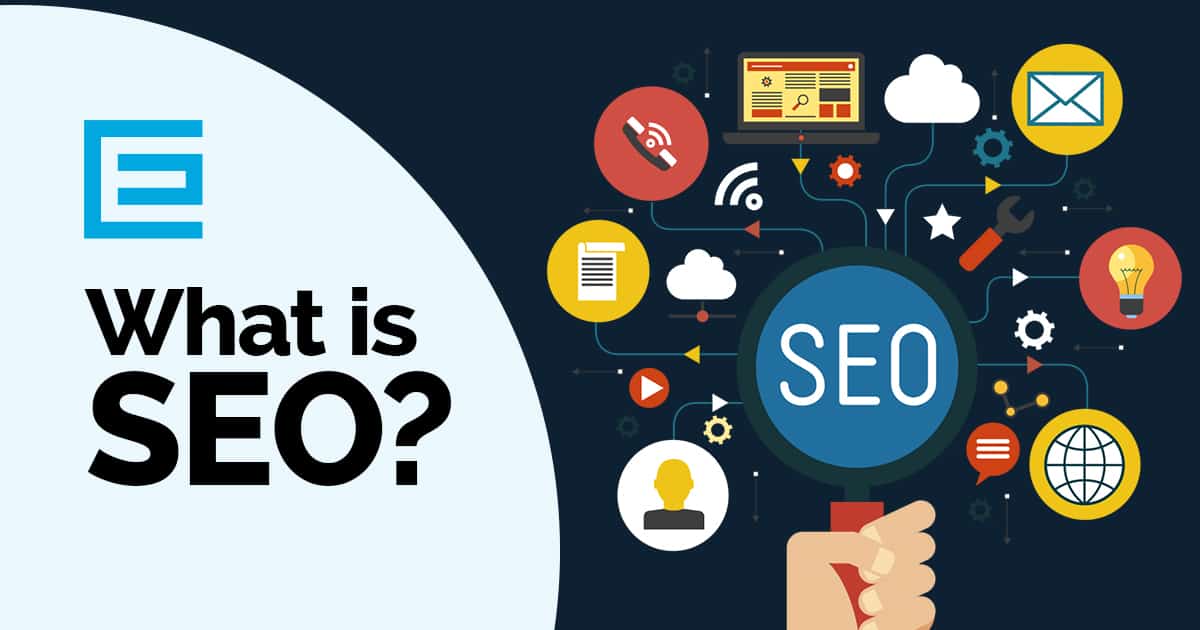

Introduction:
In today's digital age, having a website is crucial for businesses, organizations, and individuals. However, simply having a website isn't enough. You need to ensure that your website is visible to your target audience, and that's where Search Engine Optimization (SEO) comes in. In this post, we'll delve into the world of SEO, exploring its definition, importance, types, and benefits.

What is SEO?
SEO is the process of improving the visibility and ranking of a website in search engine results pages (SERPs) through various techniques and strategies. The primary goal of SEO is to increase the quality and quantity of website traffic by:
- Understanding what users search for (keywords)
- Creating relevant and valuable content
- Optimizing website structure and elements
- Building high-quality backlinks
How Search Engines Work:
Understanding SEO involves understanding how search engines operate and index web content to deliver relevant search results to users. In a simplified overview, search engines use algorithms to crawl and index web pages, analyze content and keywords, and rank pages based on relevance and authority. This process influences the visibility of web pages in search engine results pages (SERPs) and is fundamental to SEO strategies.
- Crawling: When search engines "crawl" the web, they use automated programs to systematically browse websites and web pages to find and index new content. This process allows search engines to keep their databases up to date with the latest information on the internet.
- Indexing: This means that any content that has been gathered or collected through a process called crawling is saved in very large databases for future use.
- Retrieval: Search engines recover relevant content based on users' queries by using complex algorithms to analyze and index web pages, ultimately presenting the most relevant results to the user.
- Ranking: The retrieved content is organized and prioritized based on its relevance and the authority of its source. This means that content that is most closely related to the search query and comes from trustworthy and credible sources will be ranked higher in the search results.
Types of SEO:
- On-Page SEO: Optimizing individual web pages involves enhancing various elements such as content, title tags, meta descriptions, and header tags to improve the overall performance and visibility of the page on the web.
- Off-page SEO: This means emphasizing the creation of high-quality backlinks, increasing social signals, and improving online reputation. These are important factors in building a strong online presence and improving search engine rankings.
- Technical SEO: This sentence highlights the importance of improving various factors of a website, including its architecture, page loading speed, mobile compatibility, and security measures. The goal is to ensure an efficient, user-friendly, and secure online experience for visitors.
-
Local SEO:
The benefits of SEO include:- Increased website traffic
- Improved brand visibility
Benefits of SEO:
Enhanced brand visibility and credibility refers to the improved recognition and trustworthiness of a brand among its target audience. This can be achieved through various marketing and branding efforts that aim to increase the brand's exposure and positive perception in the minds of consumers.
- Increased website traffic
- Improved brand visibility and credibility
- Targeted audience engagement
- Cost-effective marketing strategy
- Long-term results
SEO Process:
-
Keyword research and planning
-
Content creation and optimization
-
On-page optimization
-
Link building and outreach
- Technical optimization
-
Analytics and tracking
Common SEO Mistakes:
-
Keyword stuffing
-
Duplicate content
-
Slow page speed
- Poor mobile usability
- Lack of quality backlinks
SEO Tools:
-
Google Analytics
-
Google Search Console
-
SEMrush
- Ahrefs
- Moz
- Screaming frog
Conclusion :
SEO, or search engine optimization, is a powerful marketing strategy used to enhance a website's
visibility and rankings on search engine results pages. By optimizing various elements such as
keywords, content, and backlinks, businesses and organizations can attract more organic traffic to
their websites, ultimately leading to increased conversions and improved online presence.
Understanding the intricacies of SEO and its significance in online marketing is essential for
achieving long-term success in the digital landscape. Contact us at contact@lifeboat.co.in for more information.
SEO Process:
- Keyword research and planning
- Content creation and optimization
- On-page optimization
- Link building and outreach
- Technical optimization
- Analytics and tracking
Common SEO Mistakes:
- Keyword stuffing
- Duplicate content
- Slow page speed
- Poor mobile usability
- Lack of quality backlinks
SEO Tools:
- Google Analytics
- Google Search Console
- SEMrush
- Ahrefs
- Moz
- Screaming frog
Conclusion :
SEO, or search engine optimization, is a powerful marketing strategy used to enhance a website's visibility and rankings on search engine results pages. By optimizing various elements such as keywords, content, and backlinks, businesses and organizations can attract more organic traffic to their websites, ultimately leading to increased conversions and improved online presence. Understanding the intricacies of SEO and its significance in online marketing is essential for achieving long-term success in the digital landscape. Contact us at contact@lifeboat.co.in for more information.


